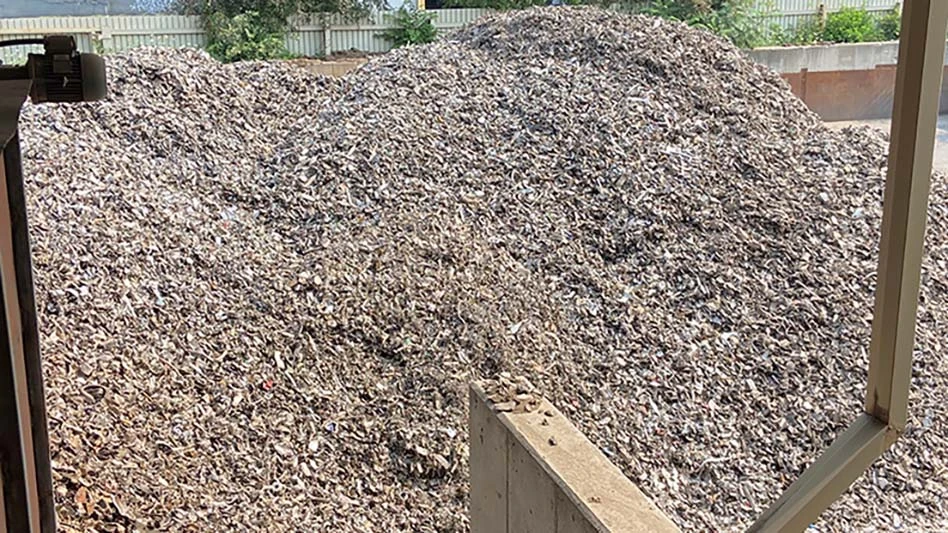
© Steve Allen | Dreamstime.com
The Container Recycling Institute (CRI), Culver City, California, has reported major errors in the budget for California’s Beverage Container Recycling Fund (BCRF).
The California Department of Resources Recycling and Recovery (CalRecycle) runs California’s BCRF. According to an announcement from CRI, data uncovered through CRI’s research and analysis of California’s bottle bill showed errors in California Gov. Gavin Newsom’s 2023-2024 budget for BCRF. CRI President Susan Collins sent a letter to the California Senate Budget Committee expressing concerns about this year’s BCRF budget. Concerns listed in Collins’ letter include:
- the BCRF fund balance being understated by $188 million compared with the amount reported by CalRecycle to the state’s Department of Finance;
- errors totaling $1.5 billion in the governor’s budget related to the BCRF and the Glass Account; and
- the fact that information presented to the budget subcommittee and full committee does not support the authorization of $140 million in loans from the BCRF.
Based on this data, CRI says BCRF’s balance could fall below the prudent reserve. CRI states that the fund is fortunate that it has more money in it than the amount that was reported to state lawmakers, which should ensure the $140 million in loans will not cause the fund balance to dip below prudent reserves.
Collins tells Recycling Today that her team has been monitoring California’s bottle deposit program for many years as advocates for beverage container recycling.
“We’ve always done a fair amount of financial analysis on this program,” she says. “I did some financial analyses on the different components of the fund to see which methods were most effective in terms of cost per container, and along the way, CalRecycle started issuing reports that were clearly erroneous with weird line items, like a prior-year adjustment of $100 million … which deserves an explanation. [That adjustment] was a way of correcting their books. We learned there were so many problems we recommended that the state audit CalRecycle’s program. The California state auditor did an audit of CalRecycle in 2014. I subsequently found out that the Department of Finance audited the fund seven times … and they found financial reports were materially misstated.
RELATED: CRI president details California's 'bottle bill' expansion in webinar
She continues, “These financial reporting problems have persisted. So, every year, I request the actual records that go to the state controller’s office, and I compare those to the public reports that CalRecycle does. More often than not, the public-facing reports contain errors.”
For this year’s report, Collins says she noticed differences in many places in CalRecycle’s reports. “There was a transfer of $120 million going out from the fund, and only $60 million of that went into another count. So, $60 million was missing.”
According to CRI, the combination of multiple new spending programs, including the addition of deposits to wine and spirits, may exceed the resources in the BCRF and will likely force the program into proportional reduction. CRI says a proportional reduction would cut payments to nearly all program operators, causing redemption centers to close.
“We know that bottle bills significantly increase recycling rates and, in turn, help address our plastic pollution, marine debris and climate crises,” CRI states. “If California’s program was managed so that it achieved its statutory goal of an 80 percent recycling rate, we could save 750,000 tons of material from being landfilled each year and save greenhouse gas production equivalent to taking 84,000 cars off the road, compared to our current program. An 80 percent redemption rate also would give Californians an additional $162 million in deposit refunds each year.”
Collins adds that providing state lawmakers with inaccurate budget figures could hamper their ability to make informed decisions about the program. She says accurate reporting is essential to getting the state’s bottle bill program back on track.
She says, “The program has lost 15 points in its redemption rate. The funding is needed to rebuild the infrastructure, and the spending needs to be directed to maximize the recycling rate in this program.”
Get curated news on YOUR industry.
Enter your email to receive our newsletters.
Latest from Recycling Today
- Ship dismantlers navigate new regulatory regimen
- Gershow announces several community involvement projects
- McKinsey identifies engineering polymers as a recycling opportunity
- Metso acquisition focuses on mill liner recycling
- Malaysian customs office seizes scrap containers
- Lindner establishes Brazil subsidiary
- Tire recycling veteran predicts growth in pyrolysis
- ShearCore adds FC95 to concrete processor line





